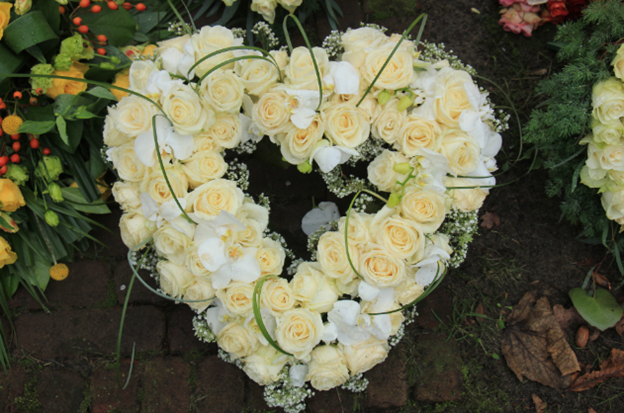Whether it be a funeral or a memorial service, the end goal is to provide comfort to the family, friends, and loved ones of the deceased person. When it comes to the funeral process, there are a number of decisions that need to be made by not just the deceased, but their friends and family as well.
One of the big decisions involved in the funeral process is whether or not to cremate the body or bury it. Both options have their pros and cons. It never hurts to do a little research on what’s involved in the decision before picking a side.
Keep reading to learn more about cremation vs burial and which one is right for you and your family.
Understanding Cremation And Burial
Cremation is the process of reducing a body to ash. It is often considered to be less expensive than burial and offers the opportunity for a service prior to or following the cremation.
Burial involves the interment of the body into the ground. It also allows for a service but also allows for the visitation of a grave site where flowers, memorials, and more can be placed.
Both provide a dignified event in which to honor a life lived. Ultimately, the decision should be based on the wishes of the deceased, cultural stigmas, willingness to pay, and other specifics. It’s also helpful to approach your local funeral home for advice.
Factors To Consider
When making funeral decisions of whether to cremate or bury a loved one, there is no right or wrong answer. It is ultimately a personal preference that can be based on a variety of factors.
Religious And Cultural Beliefs
Religious and cultural beliefs should be taken into account when deciding on burial or cremation for a loved one. Depending on the culture, beliefs may favor one option over the other, so it is important to research and understand if cremation or burial of a loved one is accepted in the culture.
Furthermore, certain religions may only require the former or the latter: for example, traditional Buddhism and Hinduism favor cremation, while Islam prefers the burial of the deceased.
Therefore, making sure that all religious and cultural beliefs are taken into account is important to ensure that the deceased is treated with the same respect they would be due in life. Furthermore, the wishes of the deceased should also be honored where possible, to ensure the best possible outcome for all concerned.
Environmental Considerations
When making the final decision for a loved one’s post-death arrangements, it is important to consider the environmental impact of each choice. Cremation is generally viewed as more environmentally conscious than earth burial. Cremation requires much less energy to be used and emits far fewer earth-harming pollutants than traditional burial methods.
Another advantage of cremation is that it takes up a much less amount of space than a casket in the ground. This leaves more open land for our ecosystems. Additionally, some states offer “green burials”, in which the body is buried in a biodegradable casket, and the grave does not have a permanent headstone to reduce environmental damage.
Financial Considerations
When considering the financial implications surrounding final arrangements after the loss of a loved one, cremation and burial are both viable options with varying costs. Ultimately, cremation is an attractive cost-saving option as it is typically far less expensive than burial costs, with the cremation itself costing a fraction of the cost of burial.
Cremation also typically doesn’t require any kind of plot or grave site, which can exponentially increase burial costs. Burial, on the other hand, is typically more extravagant and enjoyed by many for the comfort it may bring. It also tends to offer a long-term, physical permanent means of honoring the deceased as well as offering comfort for bereaved family members.
Emotional Considerations
When making the final decision for a loved one between cremation and burial, it is important to consider their wishes as well as emotional considerations. Losing a loved one is a difficult time, and if their wishes are not respected, it can be even more painful. It is recommended that the family have an open discussion about the possibilities and what would best honor the person’s life.
Each person is going to react differently, so it’s important to be respectful of the other person’s opinion. It is also important to consider the emotional implications of each approach. If a certain method will bring more pain and distress, then perhaps it should be avoided. Though it is important to be financially responsible, the emotional healing it can bring and the respect for their wishes should be the primary consideration when making a decision.
Legal Requirements
Legal requirements regarding burial or cremation vary by location, so determining requirements for your loved one is essential. Generally speaking, there may be specified waiting periods, forms, and identification needed prior to disposition. In some locations, a permit from a local health authority is necessary. Depending on the location, a doctor may be required to officially declare death prior to a disposition.
Finally, a casket may be required for burial, and a crematory will likely require specific instructions for the disposition. It is important to familiarize yourself with your particular location’s regulations and to proceed quickly if at all possible. In many cases, the funeral director acting on the family’s behalf can handle legal requirements for the burial or cremation, but it is wise to be aware of the legalities of the matter.
Cremation vs Burial: Which is Best for You or Your Loved One?
Making the final decision for your loved one can be difficult, but it’s important to remember that whatever you choose, it should reflect their wishes and, ultimately, your feelings. Cremation vs burial are both viable choices and having the knowledge and understanding to make a sound decision will help the process.
Spare yourself the burden of guilt, and let the decisions you make honor your loved one’s memory. Consider speaking to a funeral home to help you with this tough decision.
If you’d like to learn more about keeping your family out of the strange business of planning a funeral, you can read the rest of our blog.



